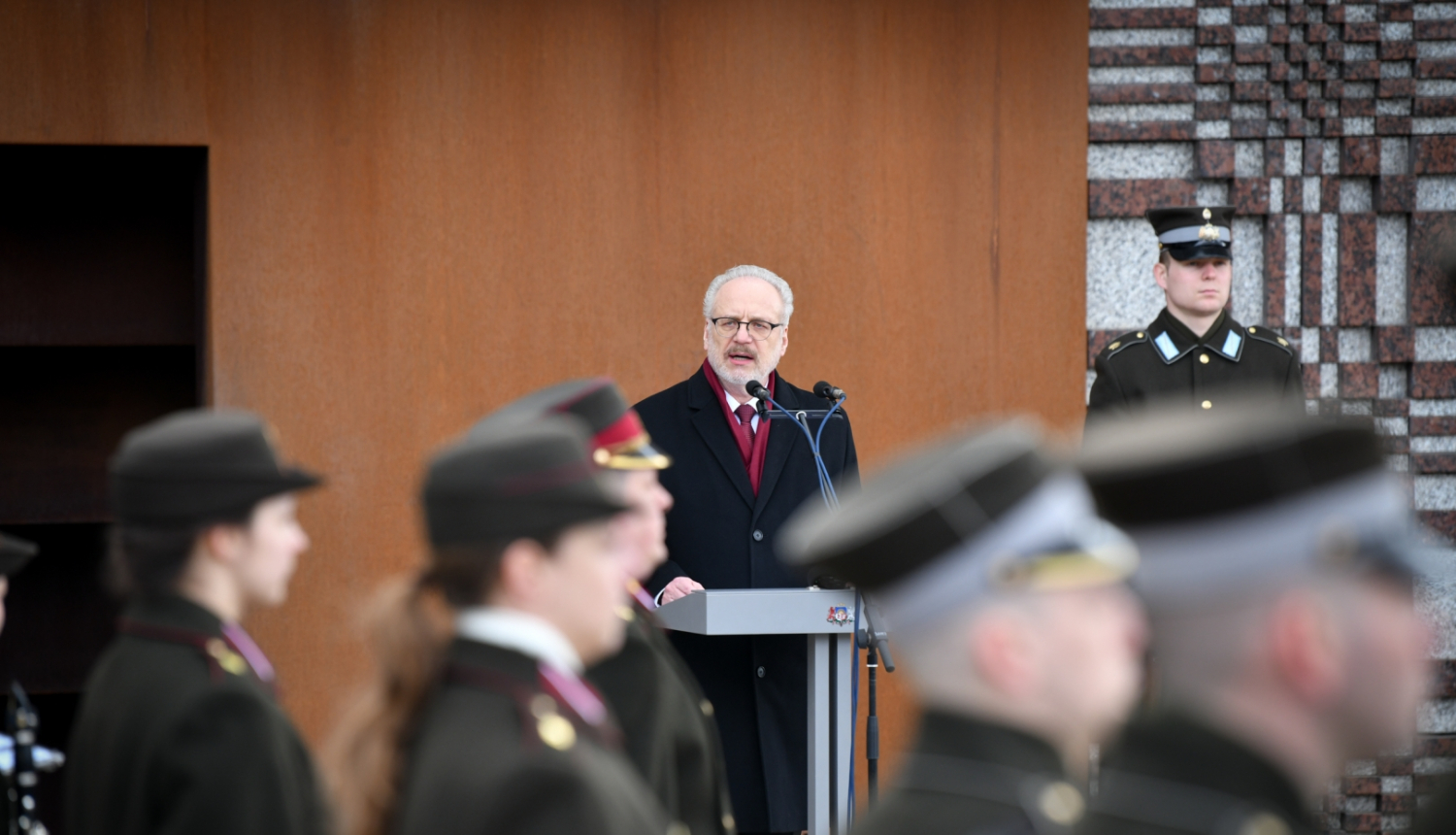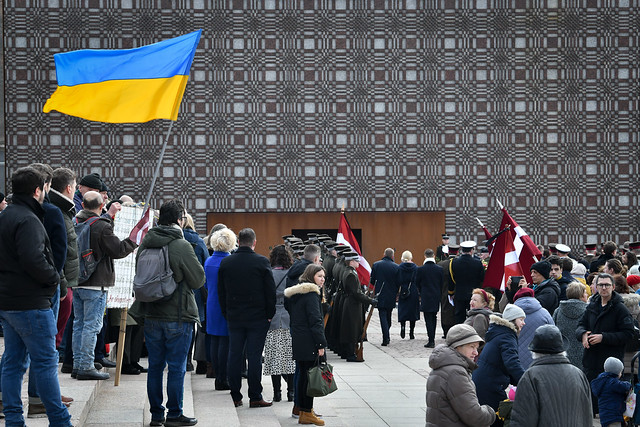Ladies and gentlemen,
I
74 years ago, foreign speech and illegitimate power had taken over Latvia.
Farmers and their families were forced into stock cars and illegally deported far away from their home.
It was the biggest and fastest cleansing of Latvian population that took Soviet totalitarian communist regime mere days.
II
Quarter of these 42,000 people were children and young people.
The goal was to eradicate Latvian identity and weaken the power of the people, the nation.
To quell public support to national partisans who continued armed resistance to occupation.
Deportation completely ruined or altered lives of many.
Deportation made aggressive sovietisation possible across rural Latvia.
Forceful mass deportation of Baltic population in 1940s has no statute of limitations from the legal point of view.
III
Soviet deportations in 1940s became taboo under Soviet occupation of Latvia that lasted almost half a century.
Most people grew up unaware of this tragedy.
Even if your own family had been deported, you only found out about that as a young man or woman in the late 1980s.
Many years of not talking about these atrocities lead to moral disorientation in the society.
Its profound effect, in the shape of relativism, still lingers on today.
Many still cannot admit what actually happened during that period.
IV
We had to restore freedom to be able to openly talk about the dark pages of our nation’s history.
For today’s Latvia deportations are a sacred history that is remembered by the whole nation.
It is absolutely vital to keep and nurture these memories forever.
Memories that are passed between generations with entirely different worldviews and living at a different time to create a personal and unbreakable bond with common past.
Memories vital for understanding the history of our nation and state. Memories important for understanding the real value of freedom and democracy.
A reminder to protect our freedom and democracy.
V
Russia’s continued aggression against Ukraine began more than a year ago. The crimes we see are similar to those committed by Soviet regime here in Latvia. Civilians are killed. People are deported.
Soviet Union’s crimes against humanity have never been put to trial in an international tribunal.
We should not let that happen again.
Civilised world must make sure Russia is served justice for its crimes. Those who gave orders, and those who obeyed them, must be held accountable.
The world we and our children will live in will never be safe or humane if we fail to do that.
VI
We must pay our tribute and keep memory of victims of Soviet oppression now and forever.
Their story must become a part of Europe’s commemorative culture and be included in European history books.
We must nurture our collective memory without any reservations and the way we see fit for it to be passed to future generations for evermore!






